http://anniebennettspain.com/2011/01/30/the-dubious-origins-of-tapas
Sunday, January 30, 2011
The dubious origins of tapas
Holidays in Marbella and life in Marbella
http://www.culturespain.com/culture-of-spain/holidays-in-marbella-and-life-in-marbella
Holidays in Marbella and life in Marbella
I had almost forgotten what Marbella was like. So, it was good to return there a couple of weeks ago – notwithstanding the fact that I was there to look into the darker side of Marbella and the Gil y Gil/Roca scandal over illegal property in Marbella (an amazing tale!)).
In fact, I have known Marbella since the mid 1970s when it was first starting to grow into a ‘serious’ tourist destination. Then, of course, it was very much smaller than now but it still had the ‘feel’ of somewhere glitzy and that aspect has clearly not changed.
Indeed, I was, once again, very impressed by much of Marbella – but then how could I not be? The old town of Marbella is delightful and packed with great bars, restaurants, boutiques, tiny winding streets and pretty squares that, even in winter, have a romance all their own. Away from the old town of Marbella, it is not so ‘charming’ but it would hard not to feel a sense of dynamism and delight at the profusion of classy restaurants, shop, hotels and shopping malls.
Meanwhile, not far away is Puerto Banus – which must be emblematic for its conspicuous wealth, awesome marina and designer shops (few of which, sadly, I would dare to step into!). In an odd way, Puerto Banus is one of those minor wonders of the world that everyone should see once, if just to experience the frission of what real wealth (and excess) is like.
However, perhaps one of the most impressive aspects to Marbella are its many excellent golf courses around which are estates – many of which have superb villas and some very fine apartment blocks. Fine quality building is not always the case, of course, but the overriding impression of the area is one of surprise at the sheer greenery of the area. This is in stark contrast to the stark, parched and barren mountains immediately inland of Marbella.
Needless to say, Marbella is famous for its beaches and nightlife. The beaches are somewhat disappointing in having little sand. Mostly, they are full of pebbles and even in the height of summer the water is noticeably cooler (the Atlantic is close by) than that along the eastern coast of Spain.
That said, the nightlife of Marbella more than makes up for any reservations about the beaches. Marbella is packed with bars, restaurants, clubs, casinos and discos. Indeed, if you are a ‘party animal’ then you should have the time of your life and be able to go somewhere different every night of your holiday in Marbella (even a long holiday!).
One of the impressive aspects to Marbella is that it is user-friendly for internationals. In Marbella, you really do not need to have a word of Spanish to get along well – either for your holidays in Marbella or its surrounding area or if you intend to live there permanently.
Indeed, Marbella is international in a way that few areas of Spain are. It has been the focus of the wealthy since the 1970s and many took their holidays in Marbella well before mass tourism. However, since then, Marbella has expanded many times over and and now, justifiably, appeals to people of all sorts.
Certainly, you do not need to be part of the wealthy elite to holiday in Marbella as it caters for everyone. There are thousands of holiday apartments in and around Marbella and a profusion of villas to rent. The great thing is that the English speaking infrastructure of Marbella is well established. By this I mean that the Spanish working in the service sector (restaurants, bars, hotels, estate agents etc.) invariably speak English. This is complemented by the huge number of English speakers who live permanently in and around Marbella – from tax consultants, to lawyers, doctors, mechanics, plumbers and so on – all of whom service English speakers living in or coming on their holidays to Marbella.
Does Marbella deliver the dream?
Well, if you want to holiday in Marbella then I think that it certainly does. The area is nothing if not glamorous, there is a superb and varied nightlife and the beaches are certainly acceptable. The area is pretty and there are plenty of activities from water sports and endless golf to day trips out, to keep you well and truly occupied. You can rub shoulders with the truly wealthy, dine well and ogle at the yachts (and luxury ships) in Puerto Banus.
Meanwhile, the weather is exceptional and closer to that of north Africa than Europe. So, the winters are usually warm and the days notable for their sun and blue skies, fulfilling the possibility of really satisfying winter holidays in Marbella. That said, the summers can be very hot indeed, particularly if the Sirocco is blowing off the Sahara – in which case you can be left gasping for cool air!
So, holidays in Marbella can work well. My only reservation is that, to some extent, you would be kidding yourself if you thought that you were seeing a true example of ‘real’ Spain. For that you would need to go inland (not far) and visit pueblos and towns that had not based their economy around international tourism. However, for most people, holidays are about relaxation in the sun and a great night life – rather than an intellectual, in-depth tour of another country’s culture. So, Marbella works well if you want somewhere user-friendly, fun and with almost guaranteed fabulous weather.
Of course, you may choose to live in Marbella. If that is the case, then fulfilling the ‘dream’ is a little more complicated and depends very much upon what you want. Certainly, expat life in Marbella can be very good – and is nothing if not convenient given the sheer number of English speakers already residing in Marbella. This means that developing a meaningful social life in Marbella can be done relatively easily – as there is a large pool of English speakers to chose from!
Backing up the social angle of life in Marbella is a well developed network of local English language newspapers and radio stations. National English language newspapers are easily obtainable and there are, literally, numerous clubs and associations on every possible topic and activity. So, your life in Marbella can be socially very busy and great fun.
Obviously, life in Marbella, unless you are careful, can remain quite separated from ‘real’ Spain. Marbella is an internationalised ‘bubble’, in some ways, and is probably not were you should live if you want to integrate within a more ‘pure’ Spanish way of life – whether that is urban (as in Madrid or Valencia) or rural such as inland pueblos. However, Andrew Linn (Culture Spains’ wine and food expert and long time Marbella resident) places an interesting slant on this argument and long term life in Marbella.
It hardly needs me to state that you must exercise the very greatest care with regard to buying property in Marbella – although that is no different from elsewhere in Spain. The scandal of illegal property in Marbella is far from over and you would be making a grave error if you thought it was or that all was suddenly well. So, be cautious and have a look at this article about illegal property in Marbella and follow the advice provided there – if you do then you should end up with a safe property in Marbella and a sound investment!
RELEVANT INFO:
Marbella illegal building licences
Bargain Spanish property for sale
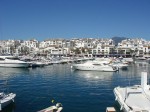
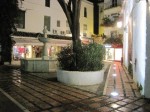
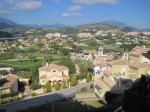
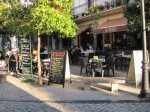
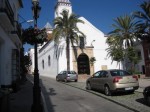 Share and Enjoy:
Share and Enjoy:










- via Feeddler RSS Reader
Saturday, January 29, 2011
Betera 390000 Euros Reduced By 280K 8 Bedrooms, Licence in Place for Small Hotel
Friday, January 28, 2011
The Black Economy In Spain | Houses for Sale in Spain

Rent-to-Buy Scheme Proving Popular, Says CAM Bank (joke article)
http://news.kyero.com/2011/01/28/rent-to-buy-scheme-proving-popular-says-cam-bank/
Rent-to-Buy Scheme Proving Popular, Says CAM Bank
CAM Bank (Caja Mediterraneo), Spain’s fifth-largest financial institution, is selling large numbers of repossessed properties to UK and Russian buyers and seeing success with its rent-to-buy programme.
Speaking exclusively to OPP this week, CAM’s international commercial director Alfredo Milla said “the rent-to-buy product is fairly new and innovative from our point of view, and people like the idea of renting a villa or apartment in Spain from our books for two years before having to consider the option of buying the property.”
The service allows renters the option to experience the area, its schools and its shops before making a big commitment, head of business development Andy Lister Cope told OPP.
CAM is proud of its comprehensive “key ready” approach to shifting repossessed property and the bank is seeing success.
“We sold nearly 4,800 properties in 2010” says Milla, “with more than 480 going to international buyers. We are definitely selling repossessed properties in large numbers now.”
CAM avoids big bulk deals because “the buyers in this sector want discounts of 50% and above, and that is far too much,” says Milla. He is looking instead for “normal’ buyers.
“We can offer mortgages with 25 to 30 year terms, sometimes up to 40 years, with a 90% loan-to-value maximum and interest rates only 0.9% above Euribor. And people like the rent-to-buy deal where the two years of monthly rental payments are used as a discount and taken off the purchase price if they decide to go ahead and buy at the end of the rental period,” Milla says.
CAM sold more overseas properties to UK buyers in 2010 than it did to any other country. Russians buyers came second on the list, followed by buyers from the Benelux countries.
“We give a full service” says Andy Lister Cope. “We sell, we do after-sales and we have all the infrastructure in place. We have the keys to every property ready for inspection, and we take selling these properties seriously.”
To this end, the bank has signed an exclusive Spanish overseas property sales partnership deal in the UK with agency Connells and has gone into “collaborative partnerships” with TUI and the Clydesdale and Yorkshire Bank.
Cope dislikes the reputation that some Spanish institutions have created during the crisis. “If you get a client who wants to buy from us,” he says, “we will have all the details ready to complete. All our properties are fully owned by CAM and registered in the name of the bank, all of the paperwork will be in place, and nothing will be offered for sale on illegal land.”
Story from OPP
Tags
- apartment, CAM bank, euribor, holiday homes, interest rates, mortgages, rent-to-buy, repossessed properties, spain property
Related posts
- Spanish Mortgage Base Rates Rise in July
- UK Holiday Homeowners Face New Tax Bomb
- Spanish Homeowners Face First Mortgage Rise in Two Years
- via Feeddler RSS Reader
Thursday, January 27, 2011
Spanish property crash and the Spanish banks
http://www.culturespain.com/breaking-news/spanish-property-crash-and-the-spanish-banks
Spanish property crash and the Spanish banks
I found a recent article by El Pais interesting. This relates to the Spanish savings banks called ‘Cajas’. These are usually quite small, local institutions with only a few branches, a bit like the UK’s old building societies. That said, not all Cajas comprise only a branch or two. la Caixa (the biggest Caja) is enormous and has about 4,700 branches throughout Spain and some 20,000+ employees.
The problem is that the Cajas are in trouble, so much so that ‘a flurry of forced mergers’ has seen their numbers drop from 45 to 17. This has been largely due to their exposure to the Spanish property crash and their part in the lunatic lending that was conducted during the Spanish property boom.
Without doubt, the Cajas have been ‘notorious’ for their localism and ‘political’ nature and their troubled situation now has come as no surprise to anyone. Indeed, I am surprised that they have lasted so long, before the truth behind their debt exposure was revealed.
Certainly, last year’s banking stress test was laughable to anyone with any knowledge of the effect that the Spanish property crash was going to have on the banks. It revealed that only a handful of Spanish banks were endangered – when the reality to anyone here, with just a few brain cells working, was so obviously very different.
Of course, the toxic bit for the banks is the amount of new development that they funded. Some of this is set to go well beyond any sane description of ‘toxic’ and relates to the funding of purchases of rustico (arable) land on the basis that it would be urbanised (redesignated as building land). Needless to say, this land (sometimes bought at ‘building land’ prices) has sometimes not been redesignated or, if it has, will not be built upon, possibly, for generations. In effect, therefore, it is virtually worthless…
In the meantime, Spanish property has dropped in value since 2007 by somewhere between 25% – 40% depending upon the segment, the area and the type of property. This is a huge loss for anyone to sustain and gives some idea of the exposure that the Spanish banks face on any building project that they have funded.
Sadly, the downward vortex with regard to the overall Spanish property market is set to continue, not least because of the (understandable) reluctance of the Spanish banks to lend. Mortgages are hard to obtain and, until this is reversed, it is difficult to envisage any major reduction in the excessive numbers of properties that were built during the boom – let alone a revitalisation of the market.
Incidentally, I write this not to put you off buying in Spain. Far from it. Buy carefully and there is no reason why any purchase should not be sound financially. However, I very much doubt that you will see much growth in value on any property that you buy – but there are enough bargain priced Spanish property around to make sure that you can easily absorb any further downturn in the Spanish property market.
In this regard, I still see a further drop in overall values this year but nothing like that posited in the El Pais article when it quotes: ‘the hypothetical downturn…’. The figures there are, I am sure, still based around the Spanish government’s ludicrous claim that Spanish property prices have only dropped, since the boom, by about 12%! This is an asinine fallacy and one that the Spanish government needs to clear up as soon as possible. The biggest drops in Spanish property values have long since occurred, the Spanish government needs to acknowledge this fact openly and allow the international community to then base their analysis and future predictions on this data – rather than the ridiculously defensive 12%.
RELEVANT INFO: The prospects for the Spanish economy look grim and mortgages in Spain, Spanish banks and the Spanish property crash and buy carefully and bargain Spanish property and bank fund lures investors with caja reform plan.
Share and Enjoy:










- via Feeddler RSS Reader
Ebay Auctions of Spanish Stuff
About Me
- Valencia Property
- Today is a new day, the sun is in the Sky. I wake up this morning and greet the new day.
























